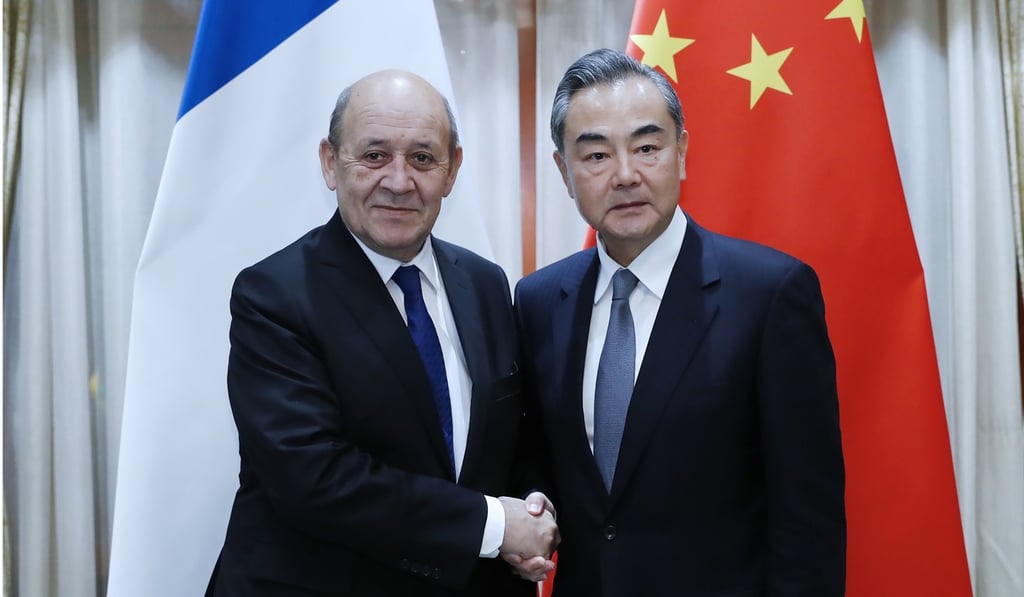Advertisement
Cherish the love: China and France should avoid causing unnecessary upset, Beijing says
- Foreign Minister Wang Yi tells French counterpart Jean-Yves Le Drian the two sides should ensure ties ‘continue to develop in a healthy way’
- Meeting comes after Paris angers Beijing by sending a warship through the sensitive Taiwan Strait
Reading Time:3 minutes
Why you can trust SCMP

France and China should value their strong relationship and not take actions that disrupt it, China’s foreign minister told his French counterpart on Thursday, just days after Beijing expressed its upset at Paris for sending a warship through the Taiwan Strait earlier this month.
Speaking at a meeting on the sidelines of the Belt and Road Forum in Beijing, Wang Yi told Jean-Yves Le Drian that the two nations “should cherish their hard-won and good relations”.
“[We should] avoid unnecessary disruptions and ensure that bilateral relations continue to develop in a healthy and progressive way,” he was quoted as saying in a statement issued on Friday by the Chinese foreign ministry.
Advertisement
Le Drian responded by saying France was willing to cooperate with China to “maintain the growth momentum of bilateral relations”, according to the statement.

Advertisement
The French frigate Vendémiaire passed through the Taiwan Strait on April 6. It had been expected to take part in a naval parade on Tuesday to celebrate the 70th anniversary of China’s navy, but Beijing withdrew the invitation in response to the action.
Advertisement
Select Voice
Select Speed
1.00x